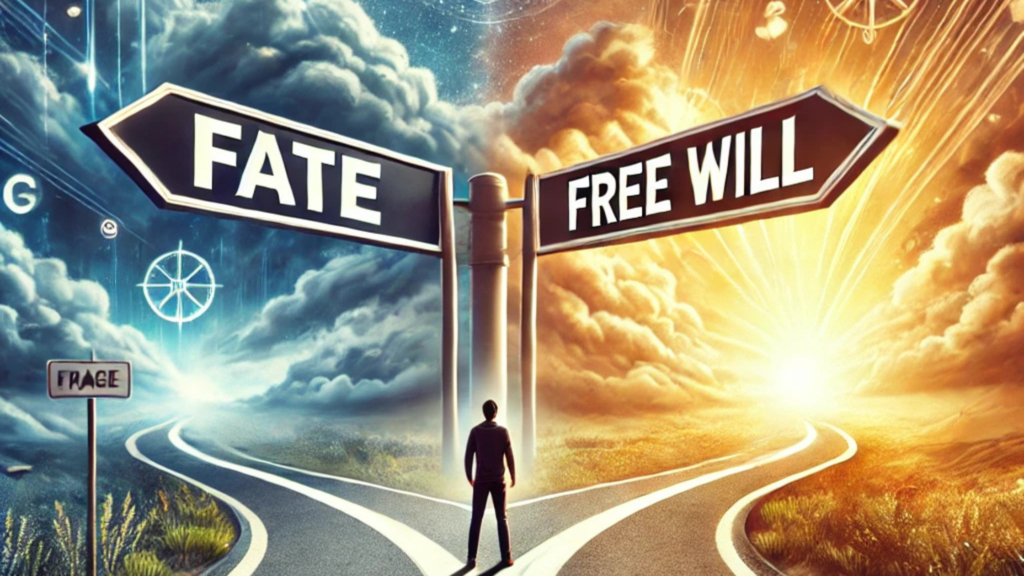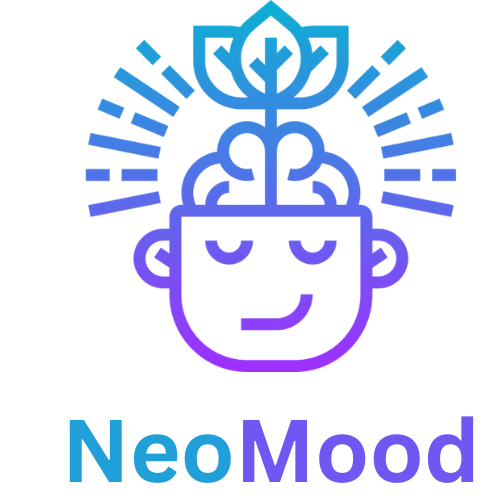
Fate vs Free Will: Can We Change Our Life’s Course, or Is It Predetermined?
The age-old debate of fate versus free will has captivated thinkers, philosophers, and everyday people alike for centuries. Do higher forces control us, or do we actively shape our life’s direction through our choices? Is our destiny preordained, or do we wield the power to change our path? This article explores Fate vs Free Will, unraveling life’s choices and our power to change its course.
What is Fate?
Fate vs Free Will, Fate is often defined as the idea that events in life are preordained and unavoidable. In various philosophical, religious, and spiritual traditions, fate is viewed as a force that governs the outcome of our lives, irrespective of the decisions we make. It implies that the significant moments in our lives—birth, death, relationships, successes, and failures—are all predetermined.
Where does the concept of fate come from?
The belief in fate is deeply rooted in ancient cultures. The Greeks, for example, believed in the “Moirai” or Fates—three goddesses who controlled the destiny of every mortal being. Their influence extended from birth to death, and even the gods were subject to their powers. The Roman equivalent was the “Parcae,” who spun, measured, and cut the thread of life. This idea of inescapable destiny has been echoed in various mythologies, spiritual practices, and literary works throughout history.
In Eastern traditions, Hinduism and Buddhism discuss “karma,” which implies that our past actions, either in this life or previous ones, shape our present and future circumstances. Karma reflects fate, suggesting accumulated actions shape our life’s path, yet we can actively influence our future.
Is Fate Fixed or Flexible?
While fate suggests a predetermined life path, the question arises—can fate be flexible? Some schools of thought suggest that fate is not rigid but adaptable, influenced by the choices we make and the actions we take.
What role does free will play?
Free will is the ability to make choices that are not determined by fate, predestination, or divine intervention. It is the belief that individuals have the power to influence their own destiny through their actions, decisions, and thoughts. The idea of free will stands in direct contrast to the concept of fate.
Philosopher Jean-Paul Sartre, a proponent of existentialism, famously stated, “Man is condemned to be free.” Sartre believed that we are not bound by fate but are free to make choices, although that freedom comes with the weight of responsibility. Existentialists believe we create meaning in life through our choices, not by following a predetermined path.
In contrast, determinists argue that all events, including human actions, are determined by preceding events or natural laws. According to this view, even the concept of free will is an illusion. If everything is governed by the laws of physics, genetics, and our environment, can we truly say we are making free choices?
Can We Change Our Fate?
The question of whether we can change our fate is a central theme in this debate. If fate governs our lives, do we have any control over the events that unfold, or are we merely passengers on a predetermined journey?
Is there a middle ground between fate and free will?
Interestingly, some philosophical and spiritual traditions suggest that fate and free will are not mutually exclusive but can coexist in a delicate balance. This idea introduces the possibility of a “predetermined path with choices along the way.”
In stoicism, “amor fati” means loving fate, accepting what we can’t control while choosing how to respond. Epictetus, a stoic philosopher, stated, “We cannot choose our external circumstances, but we can always choose how we respond to them.” This view suggests that while fate shapes circumstances, free will allows us to shape reactions, enabling growth and transformation.
Do our choices matter?
The notion that we can influence our fate, even if it’s through our internal responses, gives rise to a powerful question: Do our choices matter?
The answer may lie in how we define fate. If fate is viewed as a rigid, unchangeable force, then our choices may appear irrelevant. If fate is seen as a framework, our decisions can significantly shape how life’s details unfold. While we can’t avoid all hardships, how we navigate them can significantly change the course of our lives.
What Do Different Belief Systems Say About Fate?
Religious and spiritual traditions around the world offer varying perspectives on the question of fate. Some align closely with the belief in predestination, while others emphasize free will and personal agency.
1. Christianity and Predestination.
In Calvinist theology, predestination suggests God has already determined salvation, leaving individuals unable to change their fate.
However, other Christian denominations emphasize free will, believing that individuals have the power to choose salvation through their actions, choices, and faith. This duality creates an ongoing theological debate about whether human destiny is fixed or subject to personal choice. Fate vs Free Will
2. Hinduism and Karma.
In Hinduism, the concept of karma suggests that our current life circumstances are the result of our past actions, either in this life or previous incarnations. Karma, while determining birth circumstances and challenges, remains flexible and can be influenced by one’s actions.. Individuals can generate new karma through their actions, thoughts, and intentions, ultimately influencing their future.
Karma, therefore, introduces the possibility that fate can be changed. By practicing good deeds, cultivating positive intentions, and seeking spiritual growth, individuals can break free from negative karmic cycles and influence their future lives.
3. Buddhism and the Middle Way.
In Buddhism, karma also plays a significant role, but the philosophy offers a middle path between fate and free will. The Buddha taught that while our past actions shape our present conditions, we can change our future by making conscious decisions in the present moment. The path to enlightenment is believed to be in our hands, and the choices we make along the way influence the outcome.
Buddhist teachings suggest that while some aspects of our lives may be shaped by previous karma, we have the ability to create new karma, transforming our future and freeing ourselves from the cycle of suffering.
4. Modern Philosophy: Determinism vs. Indeterminism.
Modern philosophy presents two major opposing views regarding Fate vs Free Will: determinism and indeterminism.
- Determinism suggests that every event, including human actions, is determined by preceding causes, and free will is an illusion. Philosophers like Baruch Spinoza and David Hume argued that since everything in the universe follows natural laws, even human behavior is predetermined by prior events.
- Indeterminism, on the other hand, posits that not all events are causally determined and that randomness or chance can influence outcomes. Indeterminists argue that while certain aspects of life may be influenced by external factors, humans still have genuine choices that can alter their path.
Does Fate Limit Personal Growth and Responsibility?
One of the concerns people often raise regarding the belief in fate is the potential for it to limit personal growth and responsibility. If our lives are predetermined, what incentive do we have to improve ourselves or take responsibility for our actions?
Are we powerless in the face of fate?
Those who argue against a fixed fate emphasize the importance of personal responsibility. Philosopher Friedrich Nietzsche rejected the idea of fatalism, stating, “What does not kill me makes me stronger.” Nietzsche believed that life’s challenges and hardships are opportunities for personal growth and that the individual has the power to overcome and transcend circumstances.
Even within belief systems that accept some form of fate, there is often an emphasis on the individual’s responsibility to act with integrity, compassion, and intention. While external circumstances may be beyond our control, how we respond to them is a matter of free will. (Fate vs Free Will).
Can We Change Our Fate Through Consciousness and Awareness?
One of the more intriguing possibilities presented by spiritual practices is the idea that fate can be changed through expanded consciousness and awareness. In this view, fate is not fixed but patterns that can be transformed through increased awareness and choices.
The Power of Manifestation.
In New Age philosophy and Law of Attraction teachings, the power of intention and thought is considered a key factor in shaping one’s destiny. Rhonda Byrne emphasizes manifesting desires by focusing thoughts and emotions on specific outcomes to shape reality. According to this belief, fate is not fixed, but rather influenced by the energy we emit into the universe.
Though not universally accepted, this view highlights how thoughts, beliefs, and intentions can shape and alter experiences.
Mindfulness and Living in the Present
Mindfulness, a practice rooted in Buddhist philosophy, teaches that by living in the present moment with full awareness, we can break free from unconscious patterns and reactions. By bringing consciousness to our thoughts and actions, we gain the ability to make choices that are not dictated. Fate vs Free Will:
Conclusion: Is Fate Predetermined, or Can We Change It?
So, can we change our fate, or are our lives predetermined? The answer may not be as simple as one or the other. Many traditions and philosophies suggest that while certain aspects of life may be influenced by fate, we retain the power to influence our path through our decisions, responses, and awareness.
Fate may present challenges or opportunities, but it is through free will that we navigate those moments. Whether seen through the lens of karma, manifestation, or mindfulness, the power to change one’s destiny lies in the conscious choices we make every day. Fate vs Free.
Emerson emphasized, “You are destined to become the person you decide to be,” highlighting personal choice and responsibility.
